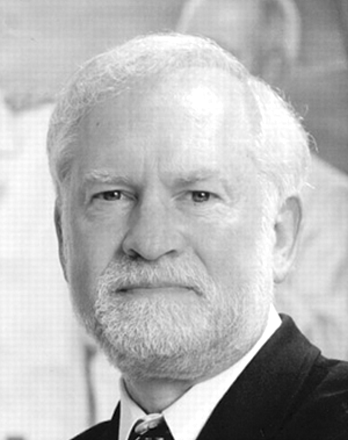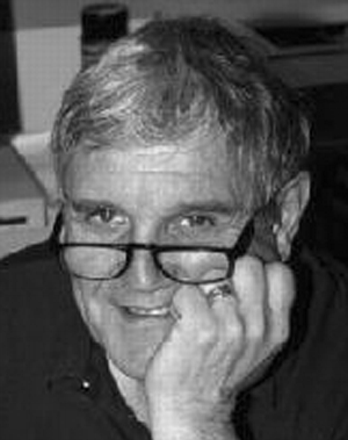Abstract
Critical elements from studies that have led to our current understanding of the factors that cause the observed primary deuterium isotope effect, (kH/kD)obs, of most enzymatically mediated reactions to be much smaller than the “true” or intrinsic primary deuterium isotope effect, kH/kD, for the reaction are presented. This new understanding has provided a unique and powerful tool for probing the catalytic and active site properties of enzymes, particularly the cytochromes P450 (P450). Examples are presented that illustrate how the technique has been used to determine kH/kD, and properties such as the catalytic nature of the reactive oxenoid intermediate, prochiral selectivity, the chemical and enzymatic mechanisms of cytochrome P450-catalyzed reactions, and the relative active site size of different P450 isoforms. Examples are also presented of how deuterium isotope effects have been used to probe mechanisms of the formation of reactive metabolites that can cause toxic effects.
Footnotes
-
↵1 Abbreviations used are: P450, cytochrome P450; NDMA, N-nitrosodimethylamine; EDB, ethylene dibromide; GSH, glutathione; Tris-BP, tris(2,3-dibromopropyl)phosphate; DBCP, 1,2-dibromo-3-chloropropane; NMF, N-methylformamide; NDPS, N-(3,5-dichlorophenyl)succinimide; 3-MC, 3-methylcholanthrene; BHT, butylated hydroxytoluene; VPA, valproic acid; 3MI, 3-methylindole.
-

-
Sid Nelson is a Professor of Medicinal Chemistry and Dean of the School of Pharmacy, University of Washington, Seattle, WA. He received his B.S. degree in Pharmacy from the University of Washington in 1968, and after serving 2 years in the U.S. Army Medical Corps., he enrolled at the University of California, San Francisco, where he received his Ph.D. degree in Medicinal Chemistry in 1974. After 2 years as a Pharmacology Research Associate (PRAT) fellow and 1 year as a staff research associate in the Laboratory of Chemical Pharmacology at the National Institutes of Health (NIH), he returned to the University of Washington as an Assistant Professor in 1977, where he was promoted to the rank of Professor of Medicinal Chemistry in 1983. At the University of Washington, Dr. Nelson teaches basic organic medicinal chemistry and a specialized course in clinical chemistry and diagnostic products to undergraduate pharmacy students. He teaches graduate student courses in medicinal chemistry and drug metabolism.
-
His research interests include mechanisms of formation and disposition of reactive drug metabolites and the design and synthesis of enzyme inhibitors. He has over 190 peer-reviewed research publications and over 40 reviews or book chapters. He has been awarded two patents and has received the John J. Abel Award from the American Society of Pharmacology and Experimental Therapeutics (ASPET), and shared the Frank R. Blood Award in Toxicology from the Society of Toxicology. Dr. Nelson has been continuously funded by NIH for his research since 1977. He was elected a Fellow of the American Association for the Advancement of Science (AAAS) in 1986 and served as Member-at-Large and Councilor for AAAS. In 1990, Dr. Nelson received the Alumnus of the Year Award from the University of Washington School of Pharmacy for excellence in teaching and research, and in 1992 the Sato Memorial International Award from the Pharmaceutical Society of Japan for excellence in research. In 1995, he received the Gibaldi Excellence in Teaching Award from the graduating class of Pharmacy students at the University of Washington.
-
Dr. Nelson is a Councilor for the International Society for the Study of Xenobiotics (ISSX) and is a member of the Society of Toxicology for which he served as Vice President and President of the Mechanisms section. He also has served as Councilor for ASPET. Dr. Nelson was a regular member of the Pharmacology NIH Study Section Review Committee from 1986 to 1990, and a regular member of the Pharmacological Sciences NIH Program Review Committee from 1991 to 1996. In addition, he is serving as an Editorial Board Member for Drug Metabolism and Disposition.
-

-
Bill Trager is currently Emeritus Professor of Medicinal Chemistry of the School of Pharmacy, University of Washington, Seattle, Washington. He is a naturalized citizen from Winnipeg, Canada. In 1960, he received his B.S. degree in Chemistry from the University of San Francisco, San Francisco, California and in 1965 his Ph.D. degree in Medicinal Chemistry from the University of Washington under the direction of Professor Alain C. Huitric. The subject of his thesis work was the conformational analysis of substituted cyclohexanes by NMR. After receiving his Ph.D. he spent two years as a Postdoctoral Fellow with Professor Arnold H. Beckett at the Chelsea School of Science and Technology in London, England. His postdoctoral studies involved the structural analysis of mitragyna alkaloids of unknown structure by spectral means (NMR, CD, IR, and UV).
-
In 1967, Dr. Trager joined the faculty of the School of Pharmacy, University of California at San Francisco as an Assistant Professor of Medicinal Chemistry. While at the University of California, he was responsible for the High Resolution Mass Spectral Facility and developed his ongoing interest in drug metabolism. In 1972, he returned to the University of Washington as an Associate Professor of Medicinal Chemistry. In 1977, he was promoted to full Professor and received a Career Development Award from the National Institutes of Health. In 1978, Dr. Trager spent 3 months at the NIH working in the Laboratory of Chemical Pharmacology with Dr. James Gillette. In 1980, he was appointed as Science Advisor to the U.S. Food and Drug Administration (FDA), Seattle District, Chairman of the Department of Medicinal Chemistry in the School of Pharmacy, and Adjunct Professor of Chemistry in the Department of Chemistry. In 1984, he left the Chair and returned to his academic positions. From 1983 to 1987, Dr. Trager served as a committee member of the Pharmacological Sciences Review Committee of the National Institutes of General Medical Sciences, and in subsequent years, he frequently served as an ad hoc member of various study sections and site visit teams.
-
Dr. Trager's primary research interests are in drug metabolism and he was the Principle Investigator of an NIH Program Project Grant for the past 20 years investigating the molecular basis of the phenomena of drug interactions. More specific interests include quantitative mass spectrometry using stable isotopes, stereoselective metabolism, and the use of deuterium isotope effects to study mechanisms of cytochrome P450-catalyzed reactions and active site structure. In 2002, Dr. Trager retired from the University and converted his full-time position to that of a part-time faculty member.
- Received April 2, 2003.
- Accepted July 1, 2003.
- The American Society for Pharmacology and Experimental Therapeutics
DMD articles become freely available 12 months after publication, and remain freely available for 5 years.Non-open access articles that fall outside this five year window are available only to institutional subscribers and current ASPET members, or through the article purchase feature at the bottom of the page.
|








